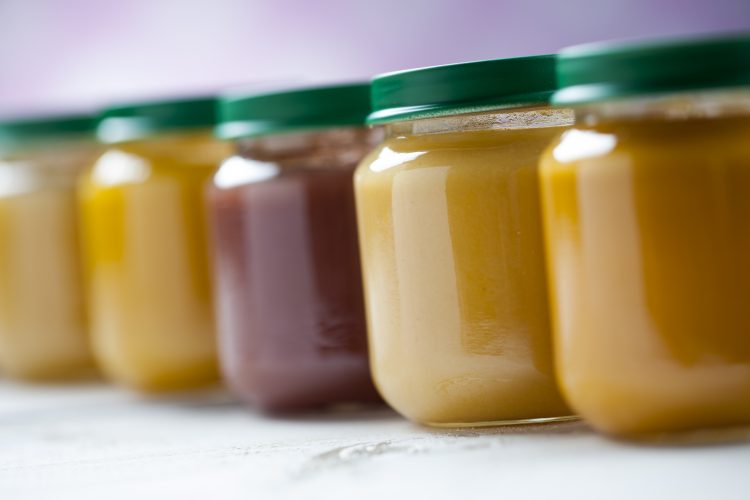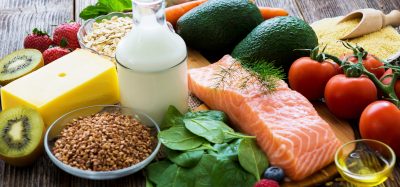Research finds most baby foods in the UK claim unregulated benefits
- Like
- Digg
- Del
- Tumblr
- VKontakte
- Buffer
- Love This
- Odnoklassniki
- Meneame
- Blogger
- Amazon
- Yahoo Mail
- Gmail
- AOL
- Newsvine
- HackerNews
- Evernote
- MySpace
- Mail.ru
- Viadeo
- Line
- Comments
- Yummly
- SMS
- Viber
- Telegram
- Subscribe
- Skype
- Facebook Messenger
- Kakao
- LiveJournal
- Yammer
- Edgar
- Fintel
- Mix
- Instapaper
- Copy Link
Posted: 2 March 2022 | Abi Sritharan (New Food) | No comments yet
An average of nine promotional claims can be found on the packaging of individual UK baby foods, finds research – and not all of them are clear.


A new study, published in the Archives of Disease in Childhood, found that an average of nine promotional claims can be found on the packaging of individual baby food products in the UK. These claims are largely unregulated, and often imply some indirect health benefit, known as the ‘healthy halo effect,’ which may be confusing for parents, the researchers state.
As mentioned in the study, the World Health Organization (WHO) has called for the establishment of standards for the promotion of commercial baby foods to align with expert recommendations on infant feeding.
However, according to the researchers, in the absence of any legally binding regulations and guidelines for the composition and promotion of manufactured baby foods in the UK and EU, “it’s something of a free-for-all amid surging sales”.
The study used both online and brick and mortar stores to find manufactured baby foods. It focused on seven major UK supermarkets–Aldi, Asda, Lidl, Tesco, Sainsbury’s, Waitrose, and Morrisons – and online retailer, Amazon in June and September 2020. Data was collected on brand name, type of packaging, net weight content (g), target age, product name, food type (wet, dry), product type (eg, snack, puree), promotional claim type, and claim message.
The promotional claims were categorised as health, nutrient, composition, and marketing. The marketing claims were further divided into those for baby-led weaning, convenience, meeting dietary goals, endorsements, ideals on feeding, lifestyle, quality, texture, taste, and other.
More than 6,000 promotional claims were identified on the 724 products. Nearly all products carried marketing claims on the packaging. Many products also had composition claims (97 percent) and nutrient claims (85 percent); just six percent of products carried direct health claims, according to researchers. The average number of total claims on each product was nine, with marketing claims totalling five, on average.
The research states that marketing claims referred mainly to texture (84 percent) and taste (70 percent). The main composition claim was organic (63 percent), while nutrient claims were mainly ’no added’ or ’less’ sugar (58 percent) and salt (57 percent).
Baby-led weaning claims were found on 72 percent of snacks. However, the promotion of snacking habits as early as six to12 months is “questionable”, as snacking may lead to obesity, said the researchers.
The role of iron in supporting normal cognitive development was the most common health claim across products.
The widespread use of unregulated promotional claims on manufactured baby foods is of concern, the researchers stated, highlighting some potential issues for the claims made. For example, ‘vegetable taste’ suggests foods are made of vegetables when in reality the ingredients might be a combination of fruit and vegetables with a predominantly sweet taste.
“Since food preferences are formed early in life and infants have an innate preference for sweet and salty foods, promoting sweet [baby foods] containing a high amount of sugar could be detrimental. Moreover, it may contribute to high energy consumption and dental caries,” the researchers wrote. “Dietary goals for fruit and vegetable consumption (five portions a day) are given for children from the age of two years; thus, the suitability of promoting claims such as ‘contributes towards your 2-of-5’ or ‘contains 1-of-5’ remains questionable.”
“Endorsements such as ‘nutritionist approved’ or ‘dietitian approved’ were widely used, but the meaning of these endorsements in terms of nutrient quality or veracity of health claims is not fully clear and needs further scrutiny,” they continued.
The researchers acknowledge that their study provides “just a snapshot of a fluid [commercial baby food] market”.
They concluded: “Promotional claims on [commercial baby food] packaging are extensively used which could mislead parents. The unrestricted use of messages and ‘health halo’ statements on packaging of [commercial baby foods] calls for policymakers and stakeholders to update guidelines, legislation, and policies to protect this vulnerable demographic so that infant feeding recommendations are not undermined.”
Related topics
Clean Label, Health & Nutrition, Ingredients, Labelling, Obesity, Packaging & Labelling, Regulation & Legislation, Research & development, retail, Supermarket, The consumer
Related organisations
Aldi, Amazon, ASDA, Lidl, Morrisons, Sainsbury's, Tesco, The World Health Organization (WHO), Waitrose








